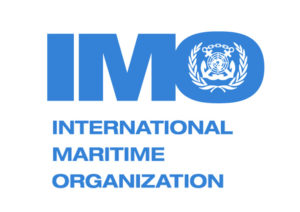
As the international Maritime Organisation (IMO) continues the review and modernization of the Global Maritime Distress and Safety System (GMDSS) this week at the fourth session of the Sub-Committee on Navigation, Communications and Search and Rescue, Nigeria, a maritime nation and a member of the organization seems completely left out from the review.
This is because the country’s maritime academy is yet to acquire the equipment and students that have passed through the institution do not even know what it looks like. Students from the academy have variously been described by commentators as half-baked that cannot compete internationally.
Recently, the Acting Rector of the Maritime Academy (MAN) Oron, Mpkandiok Ante Mkpandiok confirmed the fears of maritime industry stakeholders when he openly admitted that the quality of seafarers churned out by the school is well below acceptable standards.
Mkpandiok told newsmen in Lagos that the nation’s foremost maritime training institution lacks basic equipment like the Global Maritime Distress and Safety System (GMDSS) simulator, which is indispensable in seafarers training.
GMDSS is an internationally agreed-upon set of safety procedures, types of equipment, and communication protocols to enhance safety and make it easier to rescue distressed ships, boats and aircraft. GMDSS training is mandatory for all seafarers.
The lack of basic equipment to aid the students of the institution in their learning has left many wondering whether the government is serious about producing the right professionals in the industry. This question has remained unanswered by those in authority.
The GMDSS requirements in SOLAS Chapter IV were adopted in 1988 and ensure an integrated communications system using satellite and terrestrial radio-communication systems.
The meeting which runs from March 6-10 is expected to develop a draft modernization plan for the GMDSS for approval by the Maritime Safety Committee (MSC). The meeting is also expected to prepare draft amendments to SOLAS to accommodate additional, global or regional, mobile satellite systems. There are several agenda items related to e-navigation.
Also on the agenda are the technical review of proposed new or amended ships’ routeing measures; the functioning and operation of the Long-Range Identification and Tracking (LRIT) system; and search and rescue related matters, including the harmonization of aeronautical and maritime search and rescue. IMO Secretary-General Kitack Lim opened the session, which is being chaired by Ringo Lakeman of Netherlands.